

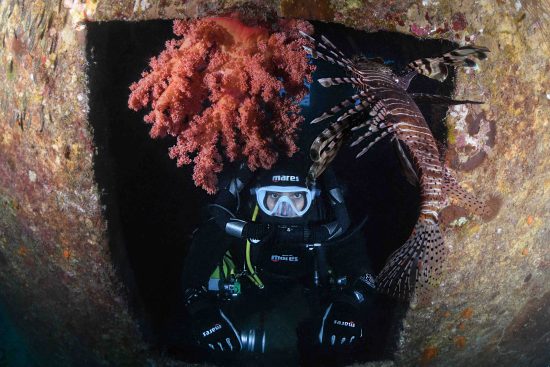
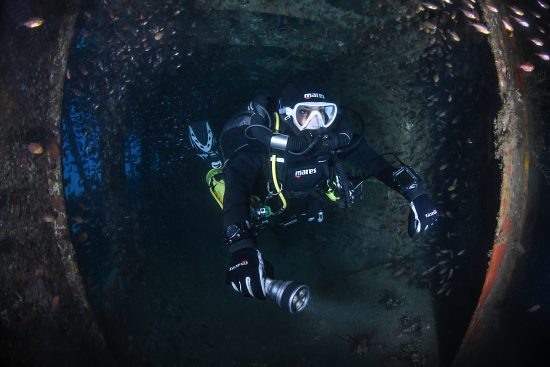
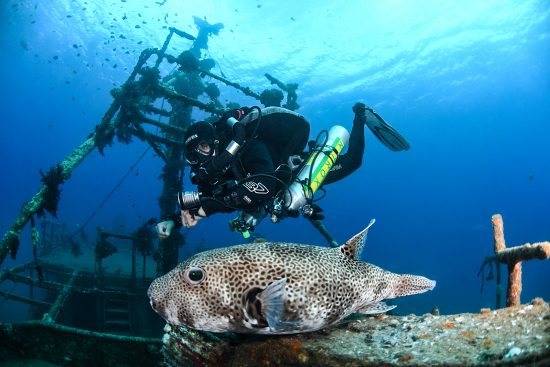
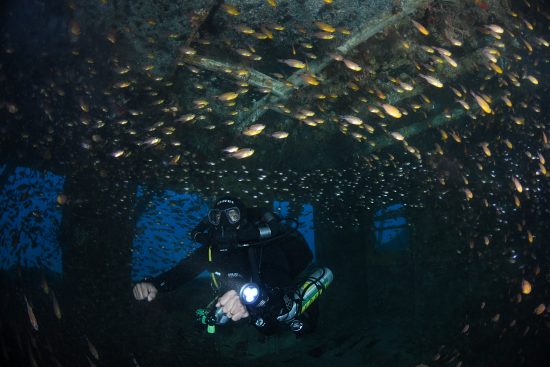
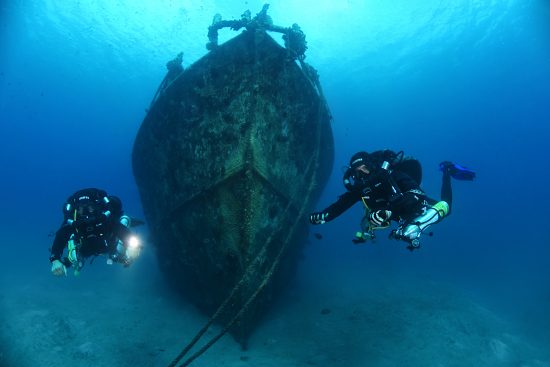
It is a well-known fact that deliberately sunk vessels become an integral part of the seabed over time. When we talk specifically about ships, the effect is even better. Corals begin to grow very quickly on wrecks and fish find their new homes. These foreign objects become an integral part of the underwater environment.
Eilat's coastline is quite short. Out of a total of 14 kilometers, only 7 are available for public use, however, even this relatively small part of the sea is extremely attractive.
We have already mentioned semi-wild dolphins and the Satil wreck, but recently another extremely interesting location has been placed on the diving map of Eilat.
The Northern Beach is the end of the Gulf of Aqaba. It extends to the border with Jordanian territorial waters. At first glance, it is an ordinary sandy beach with palm trees in the background. Below the surface of the sea, the bottom is uniformly sandy, dotted with dunes. It descends very gently to the depths and then, on the sand, out of the blue, a ship begins to appear...it is the Sun Boat.
Once upon a time, this was a liveaboard ship that sailed on diving safaris in Egypt. At one point, it stayed in the Gulf of Aqaba, which was its last port. It was there for years, until the decision was made to turn it into an artificial reef. The location where it has been sunk is quite good, protected from winds at a depth of 15 meters which is easily accessible, even to inexperienced divers.
"During the first years after it was sunk, the Sun Boat was not particularly attractive for diving, however, what we all wished for eventually happened. The sea took the ship under its wing so to speak, and underwater inhabitants occupied it in large numbers" says Noam Kotler, instructor and underwater photographer from Eilat.
During our recent stay in Eilat, we made two dives at this position. We are not exaggerating when we say that this is one of the liveliest artificial reefs we have ever been to. Schools of glassfish have settled in the interior of the ship, in such numbers that they sometimes reduce visibility. Soft corals have settled on the fences, and small schools of tuna constantly circle the ship.
It is possible to dive on the wreck both from the shore (with the help of DPV) and from a boat, because the location is clearly marked with a buoy. During preparation for the dive, we were accompanied by an Israeli Navy ship which was carrying out a routine inspection.
Once again, the fact that the sea quickly accepts submerged objects and turns them into habitats for underwater creatures has been confirmed. What seems a dull location at first glance has become a must-see dive location when visiting Eilat thanks to a sunken ship and its interaction with marine inhabitants.
Book your dive: https://www.marinadivers.co.il
Written by Janez Kranjc
Photos by Ivana OK
 Ivana and Janez
Ivana and Janez 18th April 2023
18th April 2023